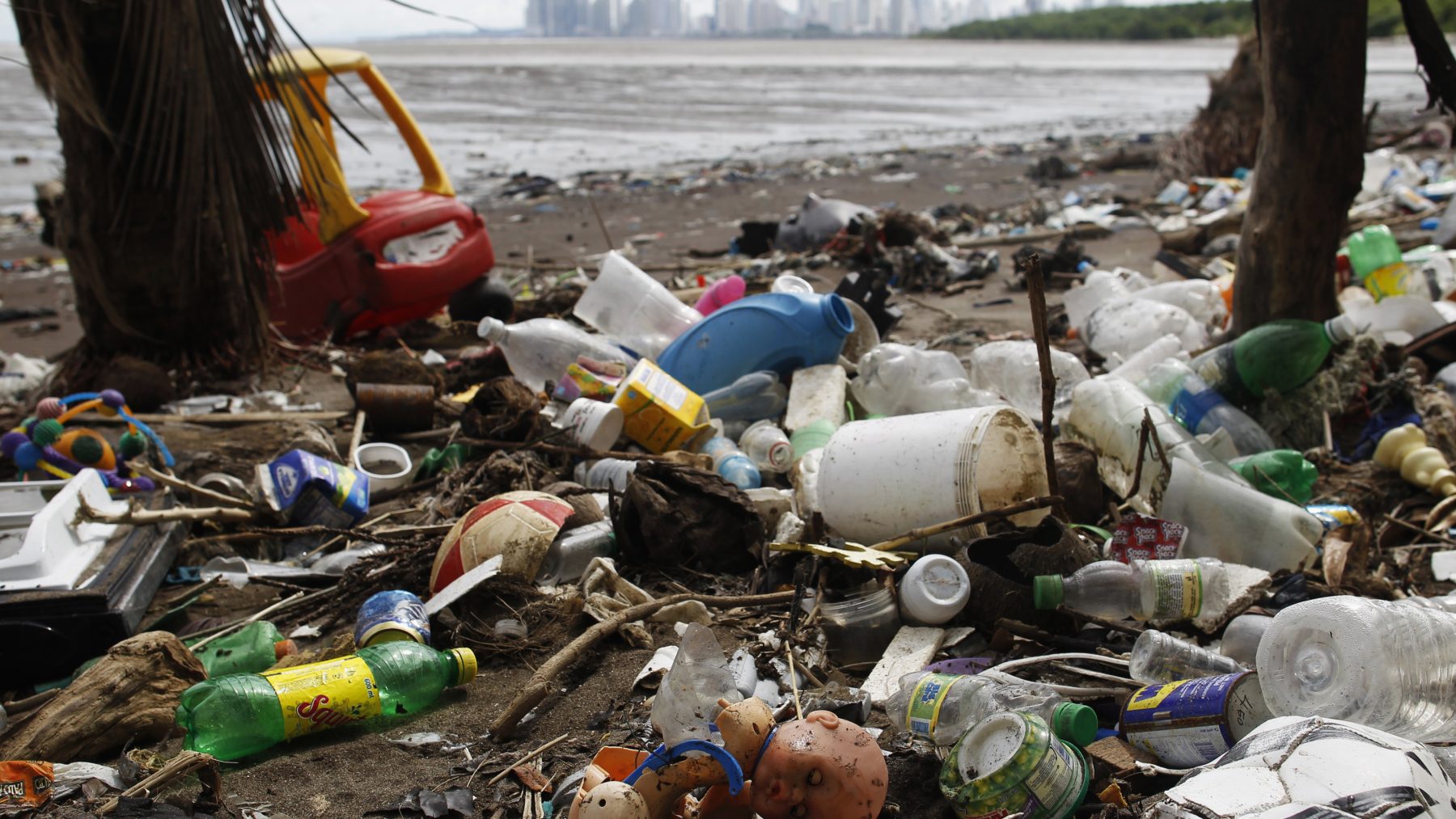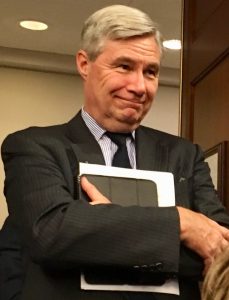Industry launches campaign to free oceans from plastic… how serious is it?

The plastics industry has a new billion-dollar campaign to get plastic trash out of the ocean, and to reduce the estimated 8 million tons that are dumped in the sea each year. In Congress, two U.S. senators are working on a bill to enhance that campaign. But is industry really suited to clean up the mess its products create?
Research shows that five developing countries in Asia are responsible for most of the plastic flow into the ocean. The new industry effort, called “the Alliance to End Plastic Waste,” aims to stop that flow, by improving the way those countries dispose of plastic.
Dow Chemical CEO Jim Fitterling was at the U.S. Senate for the American launch of the campaign. Fitterling says coastal clean-up and better plastic recycling are priorities, too.
“It’s a waste issue, and I think that’s the way we position it,” Fitterling said. “We want to end the waste environment. It’s not a plastics issue per se.”
What the campaign does not do? Fitterling says cutting the global manufacture of single-use plastics is not an objective. As he sees it, the world needs more plastic.
“You’ve got a huge growing population need. You’ve got a growing middle class need,” the CEO said. “We’ve got big global supply chains. That requires more packaging and more products. So we’re going to have to grow the business but at the same time address the circularity.”
That might be how you’d expect a plastic producer to approach the problem: it’s not the product, it’s the misuse.
Support from some senators
Sens. Dan Sullivan, R-Alaska, and Sheldon Whitehouse, D-R.I., endorse the approach, too. Whitehouse is one of the Senate’s big environmental champions, particularly on climate change. He says it makes sense to focus on better waste management in the countries that produce most of the ocean waste.
“When that’s been identified as the primary source of the problem, might as well address that,” Whitehouse said.
Whitehouse and Sullivan are a team when it comes to reducing ocean trash. The Save Our Seas Act they sponsored last year beefs up the federal response to marine debris and calls on the administration to press the issue overseas. Now the senators are working on Save Our Seas II. They say the bill will dovetail the industry’s campaign, with emphasis on industry and government working together.
Cities in Alaska have tried to cut down on plastic waste by banning single-use shopping bags. Others cities are targeting plastic straws. Sullivan says product bans like that should remain local questions, and he says they can help.
“We’re not the major source of the problem. It’s five countries in Asia,” Sullivan said. “But we’re not perfect.”

Sen. Whitehouse sees another benefit to American efforts to cut back on plastic use.
“I encourage all of those kind of activities. Everything that people can focus on, whether it’s straws or plastic bags,” Whitehouse said. “Because among the things that does … is it brings consumer attention to the issue. And consumer attention to the issue is what has brought executive attention to the issue in these (plastics) companies. And that, in turn, has produced this alliance.”
Some skepticism
Other lawmakers are reserving judgment on whether an effort led by the likes of Dow Chemical is sincere.
“Look, I welcome industry leadership and good stewardship. I hope that’s a real thing,” said Rep. Jared Huffman, D-Calif. He chairs an oceans subcommittee in the House.
“I just know that plastics are ubiquitous in part because lots of industries have made them ubiquitous,” Huffman said. “We have to reimagine the materials we use in so many different ways, and for the plastic industry, that may not be good for business.”
The Dow CEO says materials innovation — like making plastics stronger and thus thinner — is a goal of the new campaign.
Sens Sullivan and Whitehouse says their bill is almost ready to introduce.
Related stories from around the North:
Canada: Canada announces investments to tackle illegal fishing and discarded fishing gear, Radio Canada International
Finland: Citizens’ initiative prompts Finnish lawmakers to consider microplastics ban, Yle News
Norway: Urgent action needed to protect Arctic Ocean, WWF says, The Independent Barents Observer
Russia: Russian Navy sends clean-up team to Arctic trash dump, The Independent Barents Observer
Sweden: Swedish raft made from trash draws attention to plastic pollution, Radio Sweden
United States: Alaska’s largest city bans plastic bags, starting in 2019, Alaska Public Media



